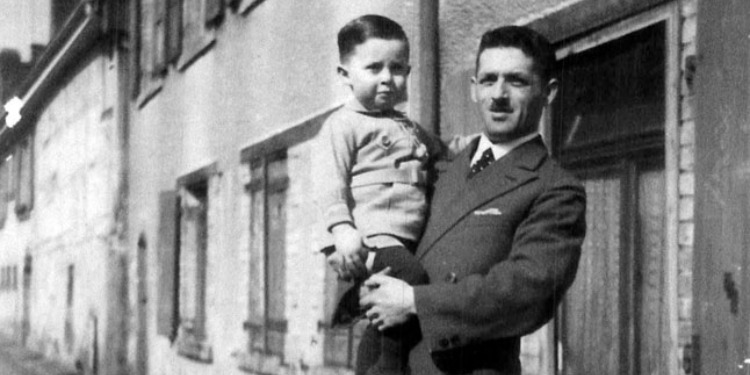The Boy and the Butcher
The Fellowship | December 7, 2021

The boy was born Herbert Odenheimer in 1934, in Buehl, Germany. He was born into a Jewish family, and was the last child born into a Jewish community that would be completely destroyed just six years later. When Herbert was just four, the Nazis carried out Kristallnacht, burning down the town’s synagogue and attacking the boy’s home. Two years later, six-year-old Herbert and the remaining Jews of the community were deported to a concentration camp.
In the camp, there was no water or food or sanitation, and starvation and disease were rampant. A typhoid outbreak killed hundreds of Jews, including the boy’s beloved grandmother. But in February of 1941, the boy found hope. Along with other children in the camp, he was sneaked out and placed in the care of loving strangers. The boy would never again see his parents, for they would be murdered in Auschwitz the following year.
Away from the Nazis, the boy was not yet safe. His name was changed to a French one, Hubert Odet, and he learned to speak French and act as if he were from France, the country where he’d been taken. Despondent because of the loss of his parents, the boy spent months in children’s homes, being moved as the Nazis ferreted out hidden Jewish children. After there were no more safe institutions, the boy was sent to live with a French family, who treated him badly. After this was discovered, he was then moved to the home of Jules and Jeanne Roger.
Jules Roger worked as a butcher, but spent equal time fighting the occupying Germans as part of the Resistance. The Rogers also had a ten-year-old boy of their own, but still opened the family home to Jewish refugees, despite the danger it posed. The Resistance also used the Roger household to hide weapons and falsified documents. But despite the danger and stress the couple certainly faced, they always showed little Hubert the same attention and love as they did their own son.
Late in 1943, Nazi-sympathizing informants threatened to expose the Rogers. Hubert was then taken to Jules’ mother’s nearby farm, where he cared for the goats and attended the local school. While Hubert had to pose as an altar boy in order to hide his Jewish identity, Jules and Jeanne Roger told him he must not forget or deny his faith. He should be proud to be Jewish, they told him.
After the war ended, Hubert was kept at a home for Jewish children awaiting their parents. Each day, Jewish children were found by the family they believed they had lost. But not poor Hubert. He was to learn the sad truth — that his parents had been killed during the Holocaust.
A year later, Hubert was sent to Switzerland to live with the only distant relatives he had left. There he re-learned his original language, German, and took on yet another new name — Ehud Loeb. And it was as Ehud Loeb that the boy who had been saved by the butcher would at last make aliyah (immigrate) to Israel. And it was his biblical homeland, Israel, that would in 1989 declare the French couple who had saved that little boy to be Righteous Gentiles.
